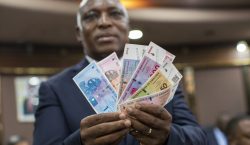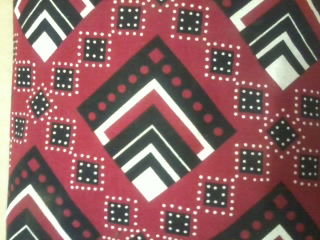


Demystifying Chivanhu/Isintu/African Tradition
Mbuya VaChinjanja Muroro
 I have been receiving a number of emails from readers requesting me to refer them to a n’anga/inyanga or traditional healer for problems they are facing. I have therefore decided to give tips on how to select your traditional healer by way of describing the different types of the healers. The common denominator is that all the traditional healers get their powers from their ancestors.
I have been receiving a number of emails from readers requesting me to refer them to a n’anga/inyanga or traditional healer for problems they are facing. I have therefore decided to give tips on how to select your traditional healer by way of describing the different types of the healers. The common denominator is that all the traditional healers get their powers from their ancestors.
One-skill type
These have a special skill for healing or assisting with a single or few problems especially of reproductive and maternal health in nature such infertility, sex-change (before conception), midwifery, infant health, STIs etc. They are not regarded by the community as n’angas as they do not operate from a room/hut allocated for consultation called nhumba or banya in Shona.
Herbalists
Herbalists treat illnesses including ordinary complaints such as flus or wounds using medicines. The term ‘herbalist’ is a misnomer because they also use animal products. Apart from illnesses, herbalists also take care of some misfortunes that might be a result of witchcraft. They can operate in public places such as markets where they sell their medicines.
Diviners
These traditional healers have a gift of diagnosis. They are able to tell the past, present and the future. The experts among them also have a special gift of ability to communicate with the patient’s ancestral spirits. The methods they use depend on their spirits; some might throw bones, use mirrors, snuff or get fully or partially possessed by their ancestral spirit.
Initiators
Initiators take new mediums through the paces of becoming a fully fledged spirit mediums or practicing healers. They also have the gift of communicating with the patient’s ancestral spirits. Some ordinary spirit mediums who are not n’anga per se can also be consulted for this purpose. It is advised that one should be initiated by the person with a similar spirit to the one that the patient has. In other words if one has a njuzu spirit, they should look for a n’anga with a njuzu spirit as well and so on.
Exorcists
These are powerful n’angas who have the expertise in casting away evil spirits. They have magic-like powers. They are also good at “preventive medicine” such as protecting homes from witches or thieves. They are fighters because they confront forces of darkness and as a result they are also expensive.
The classification done above is really gift-specific rather than healer-specific because some n’angas will have a mix of different types of expertise.
Traditional healers in Zimbabwe are required to be licenced by the Traditional Medical Practitioners Council (TMPC) located in the Ministry of Health and Child Welfare established under the TMPC Act, CAP 27:14. They are also organised into a number of associations.
-Mbuya VaChinjanja Muroro is a Development Practitioner with a passion for Cultural Heritage and can be reached at mbuyavachinjanjamuroro@gmail.com
Sorry. No data so far.

